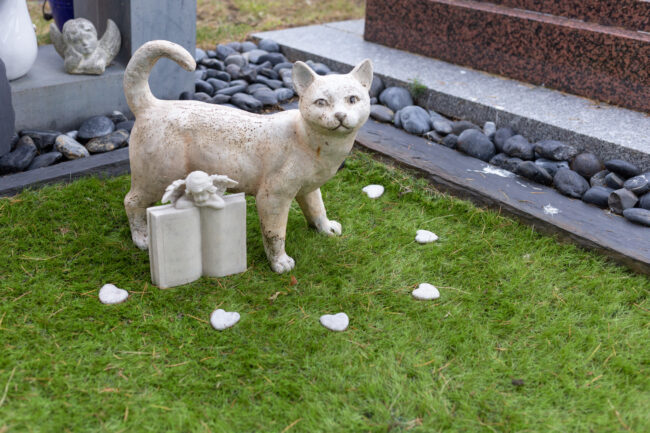The topic of pet decomposition is undeniably a delicate one, but it’s an issue many cat owners contemplate at some point, especially when faced with the loss of a feline friend. We’ll delve into the intricacies of the decomposition process for cats, revealing what you need to know about timeframes, influencing factors, and alternatives like cremation.
Understanding Animal Decomposition: A Closer Look at Cats
The decomposition process of cats is a complex affair influenced by a myriad of factors. Generally, the timeline for a cat’s decomposition can stretch from as short as 6 months to as long as 15 years. Several variables impact this time range—these include the body’s position, the environmental moisture and temperature, and whether the cat is fat or thin. The presence of predators or scavengers and the type of burial also play significant roles.

Within the first 24 to 30 hours postmortem, observable changes like skin discoloration occur, especially in the abdominal region. It’s not a one-size-fits-all situation; some pet owners have noted visible decomposition within just two days. Geographical location and seasonality can also affect the speed of the process. For instance, higher temperatures in July could accelerate decomposition considerably.
Considering Cremation as an Alternative
For those not inclined to wait for natural decomposition, cremation offers a quicker way to manage a cat’s remains. There are two main types of pet cremations: communal and private. A communal cremation involves multiple animals and doesn’t allow for the retrieval of your pet’s ashes. On the other hand, private cremation is exclusive to your pet, letting you keep their ashes as a memento.
The Impact of Rigor Mortis on Decomposition
Rigor mortis is a biological phenomenon that serves as a reliable indicator of death. Occurring between 10 minutes to 3 hours postmortem, muscle rigidity sets in and becomes fully developed within 6 to 12 hours. Rigor mortis gives a substantial clue about how far along the decomposition process has gone, which is especially useful for pet owners who want a timeframe.
How Temperature Affects Decomposition
Temperature can significantly influence how fast a cat’s body decomposes. Warmer climates lead to rapid decomposition—expect rigor mortis to set in quickly, sometimes within 10 minutes, with the body reaching a skeletal state in about three to four months if left in shaded areas. In moist and hot environments, the process is even faster. However, other conditions like burial depth and scavenger presence can either slow down or speed up the decomposition process.
The Influence of Fat and Predators
Both body fat and predators are key contributors to how quickly a cat’s body decomposes. Fatter cats tend to decompose more rapidly because fat accelerates the breakdown of tissues. Predators and scavengers, if they have access to the body, can also significantly speed up the decomposition process. Various microbes within the animal’s body further contribute to the breakdown of tissues.
The Importance of Burial in Decomposition
Choosing to bury your pet can have a significant impact on the decomposition rate. Burial not only offers protection from scavengers but also leverages the earth’s natural heat to facilitate the process. Plus, burial allows pet owners the option to later retrieve their pet’s ashes if they wish, offering a poignant way to remember a cherished animal companion.
Tips for Coping with Pet Loss
Dealing with the death of a pet is emotionally challenging. Knowing what to do with your pet’s remains can ease the grieving process a bit. If your pet passes at home, you may opt for a DIY burial or take the body to a vet clinic. The grieving process is individual and there’s no standard timeframe to “get over it.” Having a sense of closure by being able to store or bury your pet can be beneficial, as can consulting with a pet grief counselor.
And there you have it—an all-encompassing guide to understanding how long it takes for a cat to decompose, influenced by various factors. We hope this article offers the detailed insights you were looking for.

Editorial Staff
Our writers, editors, content managers, and SEO specialist. We all take part in crafting amazing articles. We spend hours ensuring that each article is based on facts, researched, and thorough. You'll never want to click the back button to look for more answers other than here!
